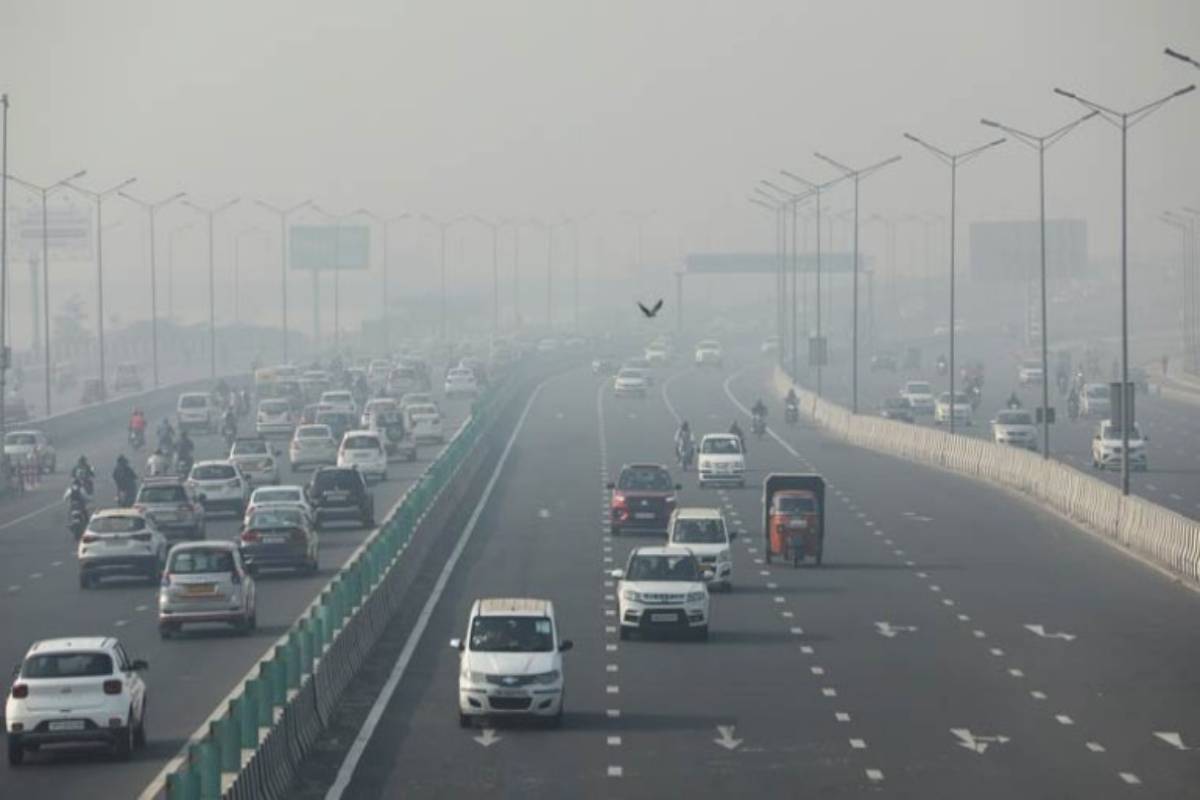CAQM invokes stage III GRAP curbs in view of spike in city’s AQI
According to the sub-committee of the CAQM, the AQI levels of the city exhibited a sharp increasing trend on Wednesday while the index value at 4 pm recorded at 365.
In an effort to ensure reduction of the paddy stubble burning across Punjab, Haryana and Uttar Pradesh, Principal Secretary to the PM instructed close monitoring of the issue by the Chief Secretaries of the three states.

(File Photo)
Prime Minister Narendra Modi’s principal secretary Dr PK Mishra on Thursday chaired a High Level Task Force meeting on air pollution in Delhi-NCR at the Prime Minister’s Office (PMO) to review the measures being taken to deal with the issue of adverse air quality in the national capital region.
During the meeting, Mishra discussed about various measures being undertaken to reduce the impact of different sources of air pollution, including stubble burning, industrial pollution, vehicular pollution, dust from construction and demolition (C&D) activities among other.
Advertisement
The Principal Secretary to PM Modi also reviewed the implementation of Graded Response Action Plan (GRAP), and measures to improve its enforcement at grass root level.
Advertisement
Mishra said that strict implementation of the actions listed in the GRAP by all concerned parties is critical to prevent worsening of air quality.
He was briefed by CAQM Chairman Dr MM Kutty about the status of NCR industries shifting to cleaner fuel. Kutty said that 211 industrial areas in the national capital region have already been provided CNG connection and 7449 of the total 7759 fuel-based industries have shifted to PNG and other approved fuels.
The CAQM chairman also briefed that there has been an increase in e-vehicles and presently around 4,12,393 e-vehicles are registered in the Delhi-NCR. The number of e-buses and battery charging stations has also increased and now there are 4793 EV charging points in Delhi.
On Stubble burning in Punjab, Haryana and UP
In an effort to ensure reduction of the paddy stubble burning across Punjab, Haryana and Uttar Pradesh, Principal Secretary to the PM instructed close monitoring of the issue by the Chief Secretaries of the three states.
He advised the in-situ management of paddy stubble through Crop Residue Management (CRM) machines, and use of bio-decomposers. He also advised Indian Council of Agriculture Research (ICAR) to improve the technology.
Elaborating on ex-situ management of paddy stubble, he advised working on developing economic use of paddy straw. He stressed on developing adequate storage facilities for baled straw along with infrastructure for baling, briquetting and pelleting etc. for effective ex-situ utilisation of paddy straw.
Mishra emphasized on a multi-pronged approach, comprising several measures, such as procurement of biomass pellets, adopting the benchmark price issued by the Ministry of Power, expanding gas infrastructure and supply in the entire NCR region by March 2024, and ensuring expeditious supply of biomass on demand.
The meeting was attended by all major stakeholders, including Secretaries to the Government of India in the Ministries of Environment, Agriculture, Power, Petroleum, Road Transport & Highways, Housing and Urban Affairs, Animal Husbandry & Dairying and the Commission for Air Quality Management in NCR.
Chief Secretaries of Punjab, Haryana, Uttar Pradesh, Rajasthan and NCT of Delhi, Central Pollution Control Board and the respective State Pollution Control Boards were also present in the review meeting.
Advertisement